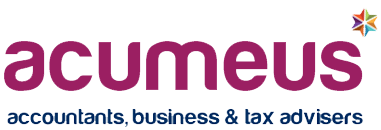As the end of the 2024/25 tax year approaches on 5 April 2025, it’s crucial for higher rate taxpayers to take a proactive approach to personal tax planning. Higher rate taxpayers – those earning between £50,270 and £125,140 – face a tax rate of 40% on income over the basic rate threshold. Effective tax planning can help you minimize your tax liability, maximize your savings, and make the most of available allowances and reliefs. Here are some straightforward tips to help you optimize your tax position before the end of the 2024/25 tax year.
Utilize Your Personal Allowance
For the 2024/25 tax year, the personal allowance—the amount you can earn before paying income tax—remains at £12,570. This allowance is gradually phased out if your income exceeds £125,140, but make sure you use it fully. If you have a spouse or civil partner who is a lower earner, consider transferring income-generating assets to them to benefit from their personal allowance.
Utilise Your ISA Allowance
Individual Savings Accounts (ISAs) are a fantastic way to shelter your savings and investments from tax. For the 2024/25 tax year, you can contribute up to £20,000 across various types of ISAs—such as Cash ISAs, Stocks and Shares ISAs, Lifetime ISAs, and Innovative Finance ISAs. Any returns you make from these investments are tax-free. If you haven’t used your full ISA allowance for the year, consider making additional contributions before the deadline.
Maximize Your Pension Contributions
Contributions to a pension scheme are tax-efficient. You can contribute up to £60,000 per year (including employer contributions) and receive tax relief at your marginal rate of 40%. Contributing more than £60,000 can lead to a tax charge, so keep within the limit.
Consider making additional pension contributions before 5 April to reduce your taxable income and boost your retirement savings. Unused allowances from the previous three years can also be carried forward to the current tax year.
Investing in a pension can be a great way to save on tax, but bear in mind that any money you pay into a pension will not be available to access until you reach retirement age.
Consider Charitable Donations
Donations to registered charities can reduce your tax bill through Gift Aid. As a higher rate taxpayer, you can claim back the difference between the basic rate and higher rate of tax on your donation. This can also help you reduce your overall taxable income.
Utilise Capital Gains Tax (CGT) Allowance
Look at your investment portfolio and consider realizing capital gains up to your annual exempt amount. The Capital Gains Tax (CGT) annual exempt amount for 2024/25 is £3,000. This means you can make gains up to this amount without paying CGT. If you have assets that have appreciated in value, you might consider selling some before the tax year ends to utilize this allowance and potentially avoid a larger tax bill on the gains in the future. Keep in mind, if you’re married or in a civil partnership, you can also gift assets to your spouse or partner, which can be a strategic way to manage your tax liabilities.
Consider Tax-Efficient Investments
Investing in tax-efficient schemes like the Enterprise Investment Scheme (EIS), Venture Capital Trusts (VCTs) and the Seed Enterprise Investment Scheme (SEIS) can offer substantial tax reliefs. These schemes encourage investment in smaller, high-risk companies by offering income tax relief of 30% for EIS and VCT, and 50% for SEIS investments, on the amount invested. Furthermore, gains on these investments may be exempt from Capital Gains Tax. These schemes have specific eligibility criteria and risks, so consult a financial advisor before proceeding.
Plan for Inheritance Tax (IHT)
While not immediately affecting your annual tax bill, planning for inheritance tax can save substantial amounts in the long run. Gifts made to individuals during your lifetime can be exempt from IHT if you live for seven years after making the gift. Consider making use of annual gift allowances to reduce the value of your estate. You can gift up to £3,000 each year without incurring IHT, and this amount can be carried forward one year if unused. Additionally, gifts of up to £250 per person per year to any number of individuals are also exempt.
Review Your Income Tax Code
Errors in your tax code can lead to overpaying or underpaying tax. Review your tax code and ensure it accurately reflects your circumstances. If you spot any discrepancies, contact HMRC to correct them before the year-end.
Plan for Changes in the New Tax Year
Stay informed about any upcoming changes to tax rates or allowances for the 2025/26 tax year. Planning ahead can help you make informed decisions about your finances.
Remember, tax planning can be complex, and what works best depends on your individual circumstances. It’s always wise to seek professional advice to ensure you’re making the most of the available opportunities while staying compliant with tax laws.
Conclusion
Effective tax planning can significantly impact your financial well-being. By utilizing allowances, making strategic contributions, and reviewing your tax situation, you can ensure that you’re making the most of your financial opportunities and minimizing unnecessary tax liabilities. Don’t wait until the last minute – start reviewing your finances now to maximize your tax savings before the end of the tax year!
Are you looking for personalised advice or assistance with your tax planning? Get in touch with our experienced tax advisor today. Please click here to book a consultation.
Disclaimer: This blog is accurate as of the publication date and is intended for general informational purposes only. It does not constitute legal or professional advice. Please seek independent professional advice.

